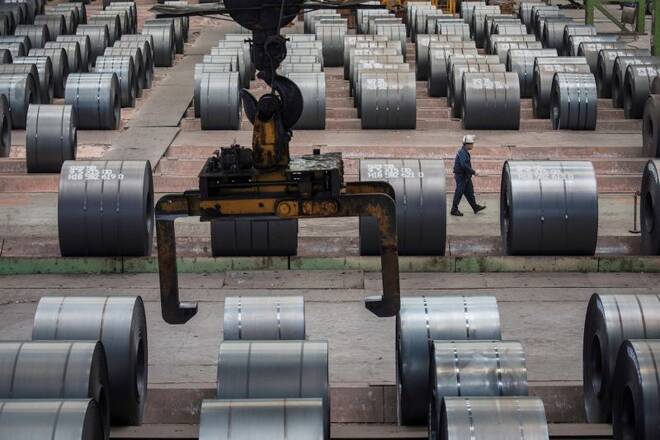Advertisement
Advertisement
China’s climate goals mean less ingredients for steel but higher quality
By:
(Reuters) - China, the world's top steel producer, will see easing demand for steelmaking raw materials like iron ore and coking coal but with better quality to meet its climate commitment, government consultancy and industry associations said on Friday.
(Reuters) – China, the world’s top steel producer, will see easing demand for steelmaking raw materials like iron ore and coking coal but with better quality to meet its climate commitment, government consultancy and industry associations said on Friday.
Beijing has pledged to bring its carbon dioxide emissions to a peak before 2030 and to neutrality by 2060, setting a hard task for the ferrous sector which contributes about 15% to the country’s total greenhouse gas emissions.
The climate goal will lead to falling demand for iron ore, a key steelmaking ingredient, Li Xinchuang, chairman of the China Metallurgical Industry Planning and Research Institute said.
Crude steel output in China had been falling for four straight months amid Beijing’s measures to cut pollutants and carbon emissions, sending its iron ore imports down and halving iron ore prices from a record in mid-May.
“Our reliance on imported iron ore had dropped to 75.7% in the first nine months of 2021 from over 80%, which is hard to achieve,” Li told an online industry conference.
However, Li expected that demand for high-grade iron ore will gradually increase with intensifying environmental curbs, low-carbon requirement and more blast furnaces at mills.
Coking coal consumption will also decline in the medium-to-long run, Cui Pijiang, chairman of the China Coking Industry Association, said, adding that supply of the resource should be “relatively stable”.
The association will hold meetings with industry participants to look into carbon emissions and to discuss an agenda to meet the climate goal, Cui told the conference.
Meanwhile, supply for steel scrap, an alternative feedstock for iron ore but with much fewer carbon emissions and cleaner, is anticipated to grow in the coming years.
Utilisation rates for steel scrap in China will rise to 30% by 2025 from a current level of 22%, Li Shubin, an official from the steel scrap association, said.
(Reporting by Min Zhang in Beijing and Tom Daly; Editing by Alexander Smith)
About the Author
Reuterscontributor
Reuters, the news and media division of Thomson Reuters, is the world’s largest international multimedia news provider reaching more than one billion people every day. Reuters provides trusted business, financial, national, and international news to professionals via Thomson Reuters desktops, the world's media organizations, and directly to consumers at Reuters.com and via Reuters TV. Learn more about Thomson Reuters products:
Advertisement
